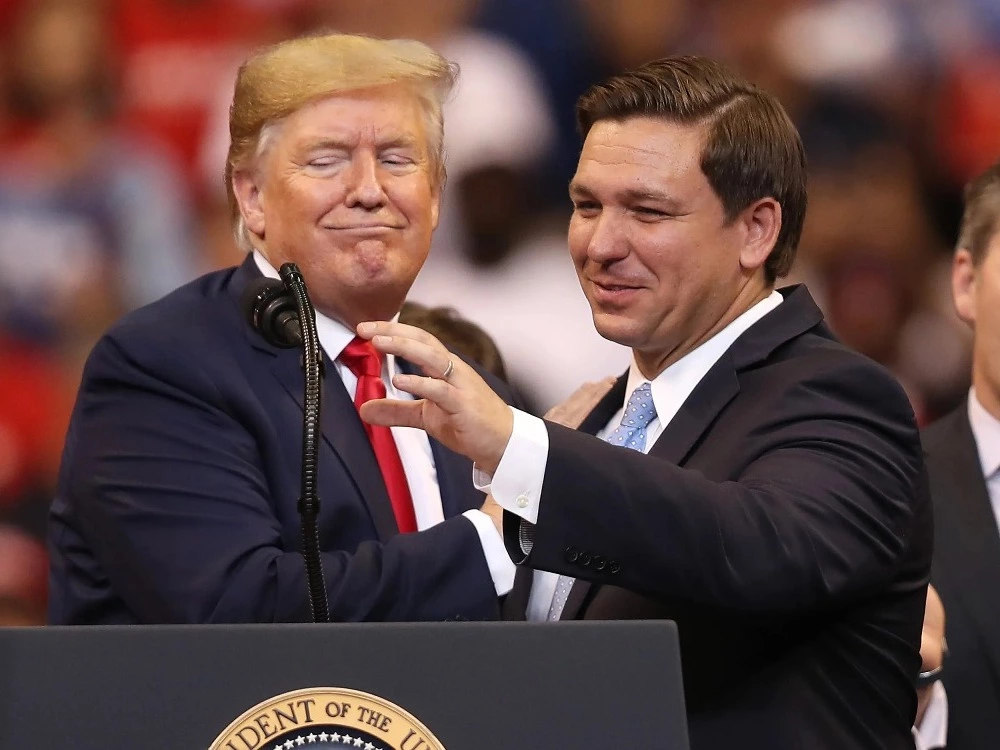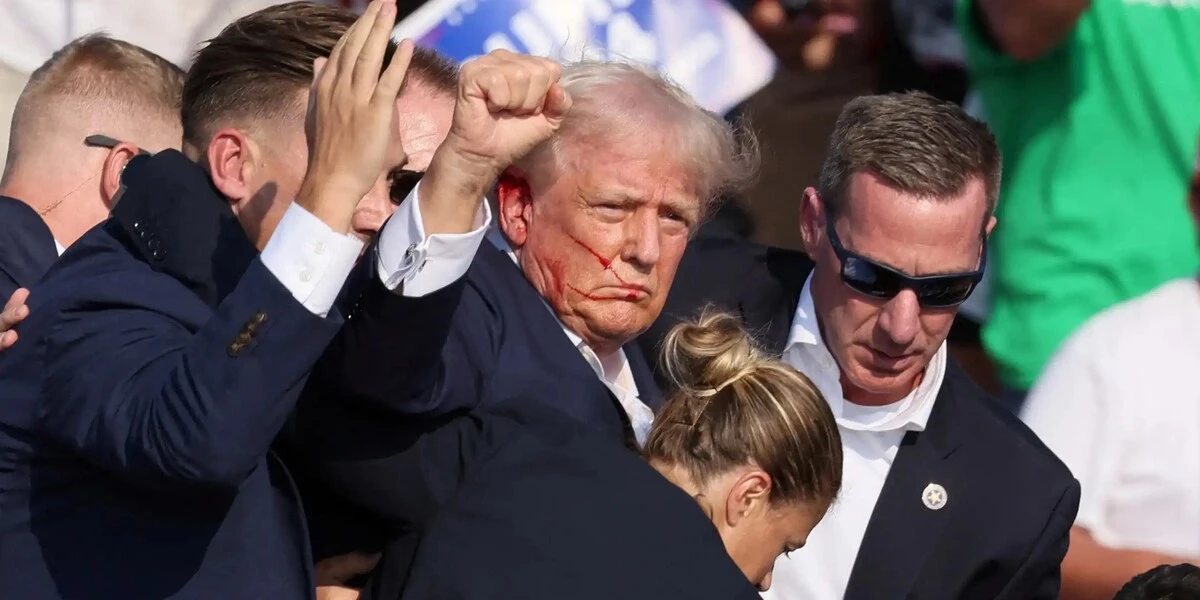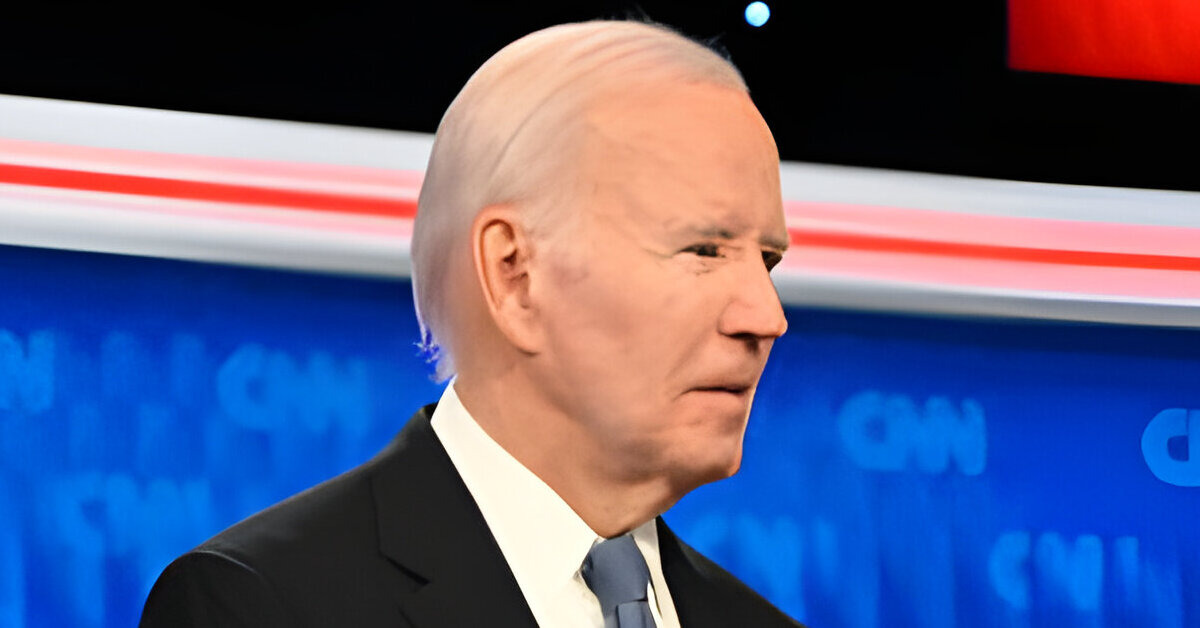DeSantis Tactful in Escalating Trump War

In the early stages of his 2024 presidential campaign, Florida Governor Ron DeSantis has embarked on a strategic tour of 12 cities across Iowa, New Hampshire, and South Carolina. With his sights set on the Republican nomination, DeSantis has positioned himself as a conservative alternative to former President Donald Trump, the current frontrunner in the race. This move has sparked a war of words between the two candidates, providing valuable insights into DeSantis’ initial campaign strategy.
Establishing Conservative Credentials:
Throughout his tour, DeSantis has been unapologetic in his conservative stance on critical issues such as abortion, immigration, government spending, crime, and LGBTQ rights. By drawing sharp contrasts with Trump, DeSantis portrays himself as a steadfast politician who remains true to his conservative principles. He suggests that Trump, during his time in the White House, compromised too readily and lost sight of his initial transformative agenda.
A Battle of Narratives:
In response to DeSantis’ rise, Trump’s camp has attempted to undermine his credibility by labeling him a “swamp puppet” and downplaying his accomplishments as Florida’s governor. Both candidates aim to distance themselves from the establishment, as being perceived as political outsiders remains an attractive quality within the Republican Party.
DeSantis’ Tour Strategy:
DeSantis’ strategic tour of early-voting states aims to position him as the biggest threat to Trump’s nomination. Despite attracting packed venues and supportive crowds, many voters remain undecided. During his speeches, DeSantis refrains from directly criticizing Trump by name but makes subtle references to issues like securing the U.S. southern border and emphasizing the importance of leadership over building a personal brand. This approach seeks to maintain support from Trump’s loyal base while signaling to voters that DeSantis represents a fresh perspective.
Taking the Gloves Off:
While DeSantis is cautious in public speeches, he is more candid in media interviews. He accuses Trump of shifting to the left during his presidency and criticizes his tendency to give opponents derogatory nicknames as “petty” and “juvenile.” DeSantis believes that such conduct played a role in Trump’s failure to secure re-election and suggests that the former president has lost touch with the ideals he championed in 2016.
Contrasting Records of Governance:
DeSantis emphasizes his own record as Florida’s governor, highlighting the implementation of numerous conservative reforms in collaboration with the Republican legislature. He underscores the importance of overcoming obstacles and resisting the temptation of making easy excuses. In contrast, Trump’s time in office is portrayed as a period of compromised principles and missed opportunities for transformative change.
Public Opinion:
According to a recent Reuters/Ipsos opinion poll conducted in May, Trump maintains a dominant lead in the Republican field with 49% support, while DeSantis follows closely behind with 19%. DeSantis’ message resonates with voters who value a consistent conservative approach, such as Doug Lambert, vice chair of the Belknap County Republican Party in New Hampshire. However, some voters, like Maureen Plyler, favor Trump’s business background and are skeptical of the escalating exchanges between the two candidates.
Strategic Messaging:
DeSantis adjusts his messaging to cater to different audiences. In states with a larger pool of independent voters, such as New Hampshire, he avoids mentioning Florida’s strict abortion ban. However, in Iowa and South Carolina, where evangelical Christians hold significant influence, he emphasizes his pro-life stance. DeSantis also distinguishes himself from the billionaire Trump by presenting himself as a “blue-collar kid” who has worked hard for his achievements. His inclusion of his wife, Casey DeSantis, and their young children on stage serves as a reminder that he represents a different generation from Trump.
Conclusion:
As Ron DeSantis challenges Donald Trump for the Republican nomination in the 2024 presidential race, he is strategically positioning himself as a more conservative and consistent alternative. The war of words between the two candidates underscores the intensity of the competition and the significance of DeSantis’ initial campaign strategy. While Trump maintains a commanding lead in the polls, DeSantis’ message resonates with conservative voters who seek a steadfast champion of their values. As the campaign unfolds, the contrasting narratives and strategies employed by DeSantis and Trump will shape the future of the Republican Party.



